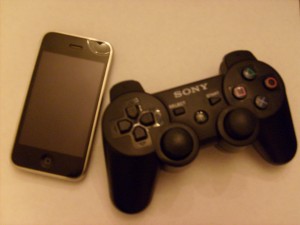
There was once a definite split, between those who played video games, and those who didn’t. It was a metaphorical brick wall, dividing society into two groups: hardcore, nerdy, mountain- dew guzzling gamers, and the somewhat ordinary rest of teen society. And then, a colorful bird launched from a slingshot blasted the wall apart.
Angry Birds, the ubiquitous game from Rovio Entertainment, and other so-called “casual games,” have done something extraordinary. Video gaming is no longer an activity only for boys aged ten to twenty. With the ever-presence of smartphones and tablets among people of both genders and all ages, it was only a matter of time before game companies found out how to target every demographic.
A cursory look at the Apple App Store or Google Play store will reveal thousands of game applications, with something for everyone, from toddlers playing with a virtual version of the red monster Elmo to adults beating their Facebook friends in an intense session of Words With Friends. The widespread nature of casual gaming, in essence, makes almost everyone a gamer.
But yet, “gamer” just doesn’t sound like the correct way to put it. Even though I would consider myself a gamer, with my Playstation up there with my most prized possessions, I’m not so sure that a fellow student who is really only obsessed with getting a triple word score on his or her iPhone would identify himself in the same way.
This attitude could be applied to most people who spend a considerable amount of time playing social or casual games. While these people do admittedly play video games frequently, the nature of the casual games they spend so much time with make them something very different than the stereotypical gamer. This difference can be found primarily in the complexity of the games.
Outside of touch-screen devices, mastering the controls of a video game platform can be a daunting task. My own father has constantly told me that he would love to play video games with me sometime, if only there weren’t so many buttons. However, the games commonly found on the App Store sell not on plot lines or realism, but incredible simplicity.
This simplicity is what has opened the gates to the land of gaming to the masses. Gaming is no longer as difficult to pick up. And, thus, there now exists the paradox of the casual gamer. This turn of events is a serious cultural shift, and changes everything, as far as being known as a gamer is concerned.
Perhaps, this will mean that there will soon no longer be a difference between gamers and everyone else. I’m sure that gamers held down by negative stigma everywhere would appreciate a chance to leap out of the stereotypical mom’s basement to see their day in the sun.










